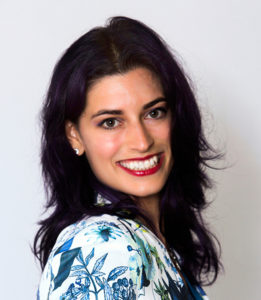
31 Jul Hard Doesn’t Mean Impossible!
Another trip back in time. Athena Matilsky’s 2018 article seems very apropos. Enjoy.
This week it was my turn to post on the NAJIT blog, and I asked some of my colleagues what I should write about. I was told, “Don’t teach. Tell your story.” So here it is.
U.N., here I come.
I graduated Rutgers in the spring of 2008 with a bachelor’s in Spanish interpreting and translation and a very big gringa complex. I had started learning Spanish just five years prior, and my language skills were a far cry from those of my classmates who had grown up in bilingual households. I had a pipe dream of becoming a UN interpreter, and I thought I could begin in the court and medical settings while I gained experience and worked on my French (which I started studying a semester after I began Spanish). But looming over me was the state court interpreter exam which at the time had an 89% fail rate (as far as I know, that number hasn’t changed much).
I remember asking my professors if they thought I could do it, and I remember their responses being less than optimistic. “I wouldn’t want to discourage you,” they began, “but…” “The test is very difficult.” “The requirements are demanding.” “Your language skills have to be spot-on...”
Honduras, here I come!
At the time, my self-assessment of my Spanish was: not bad, but not yet “fluent.” I imagined fluent to be a state of linguistic expertise I could one day achieve, or not, depending on the success of some magical “immersion.”
It took a year in Honduras and countless hours studying for me to realize that there is no such thing as fluency, at least not as I had imagined it. My language skills were, and always will be, located on a continuum, and I will never be done learning. I tend to be more forgiving about my English, learning through contextual clues without looking up terms in the dictionary, whereas I beat myself up whenever I encounter a Spanish term that I don’t know.
The year I spent in Honduras was helpful, but I had to push, hard, to achieve the Spanish input I was looking for. I carved time out of an exhausting day teaching sixth grade to make friends with the moms and speak Spanish. I arranged a homestay. I journaled in Spanish. Immersion is what you make it, and you don’t magically achieve fluency by plopping yourself in a country for a year. You have to actually try.
You never stop studying
I came home and I found a job at a domestic violence shelter as a bilingual advocate. I still wanted to be an interpreter but I still wasn’t sure that I could. Sometimes I think that if it hadn’t been for one court interpreter supervisor who believed in me enough to grant me a (non-paid) internship, I would have given up on the idea completely. But instead, I traveled through traffic twice a week to complete 70 hours of court interpreter observations, followed by 80 hours of internship with a local legal aid organization. And I kept studying. The pages of my ACEBO book started to fall out, but I kept studying.
I failed my first certification test. That coincided with the first deposition I ever interpreted, where the attorney talked about me behind my back in the bathroom, not realizing I was in the stall. She was nasty about my language skills because I had interpreted her client’s words (correctly) and she wanted his answer to be different. I was so nervous I sweated through the dress blouse that I had bought for the occasion, and I learned an important professional lesson that had nothing to do with interpreting: Always pack deodorant in your purse!
There’s an inherent balance to the world. You included.
 And yet I kept trying. I don’t know why—sheer tenacity? I’ve always been pretty stubborn. But I took the test again, and this time I passed it, at the Master level. And that’s when my attitude started to change.
And yet I kept trying. I don’t know why—sheer tenacity? I’ve always been pretty stubborn. But I took the test again, and this time I passed it, at the Master level. And that’s when my attitude started to change.
I realized that my language skills still weren’t perfect, my interpreting skills also weren’t perfect, but nobody’s are. I realized that part of being a good interpreter is knowing when you’ve made a mistake, and how to correct it. And I also realized that by studying, I had become quite good.
I’m still not great at slang or idiomatic expressions, and I still have a complex about my language abilities. But I know what my strengths are, too, and I know how to admit that I don’t know everything.
So, because I have people in my life who push me, I went for the federal exam. And the medical interpreting exam. I landed a job as a staff interpreter at a beautiful local courthouse in New Jersey, and I stayed there for three years. But then, because all that wasn’t enough for me (because I guess I’m crazy), I decided to do it all over again. In French.
As I said, you never stop studying!
S o here I am in Montreal! My French is not fluent, in that magical way I always imagined fluency to be. I worked on it over the years but it always took a back burner to Spanish, and even now in French Canada, it’s still hard to find opportunities for “immersion” when everyone always switches to immaculate English! But I’ve managed to become approved as a French court interpreter because, apparently on the continuum, my French is pretty high up there.
o here I am in Montreal! My French is not fluent, in that magical way I always imagined fluency to be. I worked on it over the years but it always took a back burner to Spanish, and even now in French Canada, it’s still hard to find opportunities for “immersion” when everyone always switches to immaculate English! But I’ve managed to become approved as a French court interpreter because, apparently on the continuum, my French is pretty high up there.
In the meantime, I’ve started teaching, something that I truly love. I tell my students that this profession is hard, but that doesn’t mean it is impossible. You just have to not take “no” for an answer.
Last year I took (and failed) the U.N. freelance exam, but I’m not going to let the muggles get me down. There have been some recent developments in my pipe dream to become a UN interpreter, in the form of continued education and persistence. My goal is starting to get within reach, and I’ll keep you posted on the specifics soon. Stay tuned!
 Athena Matilsky fell in love with Spanish the year she turned 16. She chose it as her major at Rutgers University and selected a focus in translation and interpreting. After graduation, she taught elementary school in Honduras and then returned home to begin freelancing as a medical and court interpreter. She has since achieved certifications as a Healthcare Interpreter and a Federal Court Interpreter. She was the recent editor-in-chief of Proteus. Currently, she works as a freelance interpreter/translator and trains candidates privately for the state and federal interpreting exams. When she is not writing or interpreting, you may find her practicing acroyoga or studying French. Website: https://athenaskyinterpreting.wordpress.com/
Athena Matilsky fell in love with Spanish the year she turned 16. She chose it as her major at Rutgers University and selected a focus in translation and interpreting. After graduation, she taught elementary school in Honduras and then returned home to begin freelancing as a medical and court interpreter. She has since achieved certifications as a Healthcare Interpreter and a Federal Court Interpreter. She was the recent editor-in-chief of Proteus. Currently, she works as a freelance interpreter/translator and trains candidates privately for the state and federal interpreting exams. When she is not writing or interpreting, you may find her practicing acroyoga or studying French. Website: https://athenaskyinterpreting.wordpress.com/
Click here to access Athena’s other posts.

What an insightful and beautifully written article! Heart and mind in one piece. Thank you Gio Lester for reposting and Athena Mattilsky for your beautiful piece. I’ll share it with colleagues, and with my daughter, who in addition to English and Spanish has taken up Mandarin.
Athena, thank you for your encouraging words. I always think of the immortal words of Mary Kay:
“Don’t limit yourself. Many people limit themselves to what they think they can do. You can go as far as your mind lets you. What you believe, remember, you can achieve.”
That’s the attitude we have to always have, blessings to you.
enjoyed reading the life experiences. This serves as a very inspiring model for me and , and I feel, other interpreters whether they are beginners or professionals.Thank you.
Thank you, Athena, for sharing your incredible inspirational story. No doubt that becoming a confident interpreter is a continuum process. Knowing and mastering a language is just a tool to work with. Still, mastering to use this tool in making a quality product is the whole different skill that we have to learn, improve, and perfect throughout our career even we are native speakers.
I have already read your story a couple of times, and I will be reading it in the future as a reminder “Nothing is impossible.”
I wish you all the best, and I already can see you working in that booth at the UN assembly session very soon!
Thank you again.
Athena reading your post was quite enlightening and comforting. Thank you for having the courage to speak your truth, I know many of us have encountered very similar obstacles yet do not feel humble enough, or comfortable to speak of it. I remember hearing the words; “its hard, its impossible, many fail the first time, countless times’, over through my interpreting career. But like you we stay the steadfast course, without limiting our own beliefs. Many blessings on your future and Dream in the pipeline!